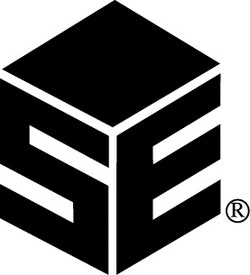Service Corporation International (NYSE:SCI) has recently announced that it will acquire Stewart Enterprises, Inc. (NASDAQ:STEI) for around $13.25 per share. Stewart’s shareholders must be very happy, as the share price has moved up as much as 70% since the beginning of the year. Service Corp also experienced a good run up of more than 30% in the same period, beating the S&P 500’s return of 15.2%. Does Stewart get a good deal? Is Service Corp a good buy after this acquisition?
The snapshot of Service Corp and Stewart
Service Corporation International (NYSE:SCI) is considered the biggest death care products and services provider, operating 1,437 funeral service locations and 374 cemeteries. It has two main business segments including Funeral and Cemetery. Most of its revenue, $1.63 billion, or 67.6% of the total revenue, were generated from the Funeral segment while the Cemetery segment contributed more than $784.7 million in revenue. The Funeral segment is also the biggest profit contributor, with $349.2 million in gross profit while the gross profit from the cemetery segment was $176 million in 2012.
Stewart Enterprises, Inc. (NASDAQ:STEI) has a long operating history, dating back to 1910. It is the second biggest funeral and cemetery products provider, operating 217 funeral homes and 141 cemeteries in the U.S. Its Funeral business segment is also the biggest revenue contributor, with $267.7 million in revenue while the Cemetery segment produced nearly $223.5 million in sales in 2012.
A perfect match with great synergies

Service Corporation International (NYSE:SCI) is trading at around $18 per share, with a total market cap of $3.8 billion. The market values the company at 9 times EV/EBITDA. Stewart Enterprises, Inc. (NASDAQ:STEI), at $13.25 per share in purchasing price, would cost around $1.17 billion in equity. Including $227 million in net debt, the total enterprise value was nearly $1.4 billion. Consequently, the deal values Stewart at nearly 11.9 times EV/EBITDA. According to Service Corp, the pre-synergy EV multiple should be more than 12 but the post-synergy multiple would be quite low, at around 8 only. EV/EBITDA reflects the relationship between the company’s market value, debt, cash and its cash flow position. The lower the ratio, the cheaper the stock.
Stewart is the most profitable company
At the acquisition price, Stewart Enterprises, Inc. (NASDAQ:STEI) is valued at a bit lower valuation than Carriage Services, Inc. (NYSE:CSV). Carriage Services is trading at around $19 per share, with a total market cap of $346.7 million. The market values Carriage Services at 12.1 times EV/EBITDA. In the first quarter 2013, Carriage Services reported impressive earnings results for the period. Its adjusted basic EPS increased by 21.4% to around $0.34 per share while free cash flow experienced spectacular growth of 314% to reach $9.1 million. In the fourth quarter, Carriage Services expected to generate around $213 to $232 million in revenue and around $1.16 to $1.18 basic adjusted EPS. The free cash flow was estimated to be in the range of $30-$32 million.
With the lower valuation, Stewart Enterprises, Inc. (NASDAQ:STEI) seems to be a more profitable company than Carriage Services, Inc. (NYSE:CSV) with a much higher return on invested capital. In 2012, while Carriage Services generated only 0.28% in ROIC, Stewart’s ROIC was around 2.7%. Service Corp ranked second with 2.06% ROIC.




